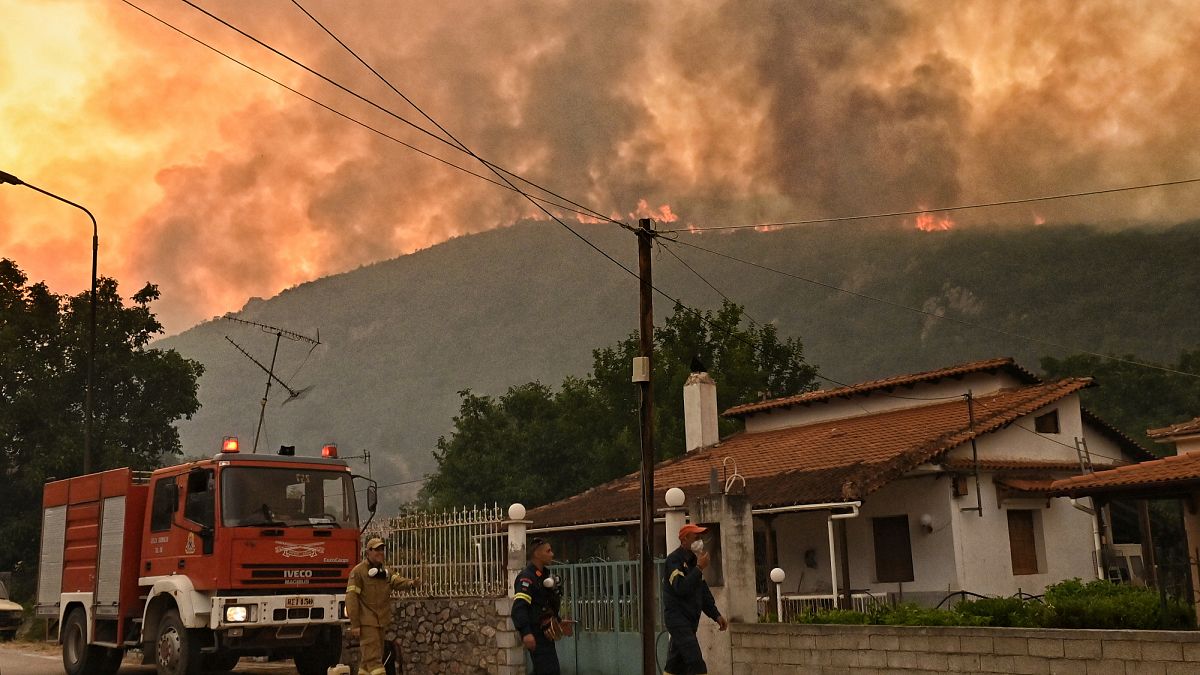

In a world where the balance between environmental conservation and human progress is increasingly delicate, Europe finds itself at the forefront of significant challenges and opportunities. Recent events spanning various European regions highlight the pressing issues and potential shifts in the continent’s landscape, both literal and metaphorical.
In Greece, a severe forest fire has necessitated the evacuation of several villages. This event underscores a worrying trend noted in a 2024 report by the EU’s Copernicus Climate Change Service. The report highlighted Europe as the continent experiencing the fastest rise in temperatures globally, with a rate twice that of the average. Such conditions inevitably lead to drier climates, amplifying the risk of forest fires, which in turn disrupt lives and local ecosystems. The community is urged to remain optimistic, as collective efforts in sustainable practices and international support can mitigate future risks.
Meanwhile, in California, an innovative art installation inspires reflection on human impact on nature. Six large trolls crafted entirely from donated wood and metal have been strategically placed in a forest, each telling a story of environmental stewardship. These installations remind us of the poignancy of creativity in promoting awareness and education on living harmfully on our planet. The message is clear: sustainable living and conscious consideration of our environmental footprint are vital in ensuring a harmonious existence with nature.
Interestingly, a discovery in Poland offers Europe an opportunity to reconsider its energy strategies. The largest oil and gas deposits in the country’s history have been found under the Baltic Sea. Analysts suggest this could present an opportunity for Europe to reduce its reliance on Russian energy, potentially altering the continent’s energy mix. Although the discovery invites strategic benefits, it also necessitates careful consideration of environmental impacts. The path forward lies in balancing resource utilization with ecological protection, encouraging technologies that allow for greener energy extraction and consumption practices.
On the island of Cyprus, an extreme weather warning has been issued as temperatures are forecast to reach an intense 41°C. However, there is promise of relief with predictions of the heatwave subsiding by the next week. Residents are reminded to remain vigilant in such weather conditions, prioritizing health and safety. This situation serves as another stark indicator of the shifting climate patterns affecting Europe and the need for robust systems to cope with such extremes.
Concurrently, political movements within the EU echo these calls for greater responsibility. Greece is advocating for the union to adopt a stringent stance on migration during a meeting of EU interior ministers in Copenhagen. The dialogue highlights the complexities of migration policy against a backdrop of environmental and humanitarian considerations. Strengthening cooperative strategies among member states can pave the way for humane, effective policy frameworks that address migration in line with contemporary challenges such as climate change.
Across these diverse narratives, Europe is navigating a period of profound transformation. As stakeholders reflect on both immediate responses and long-term strategies, an integrated approach combining technological innovation, environmental stewardship, and collective action promises a more resilient and sustainable future for the continent.
Source: {link}
